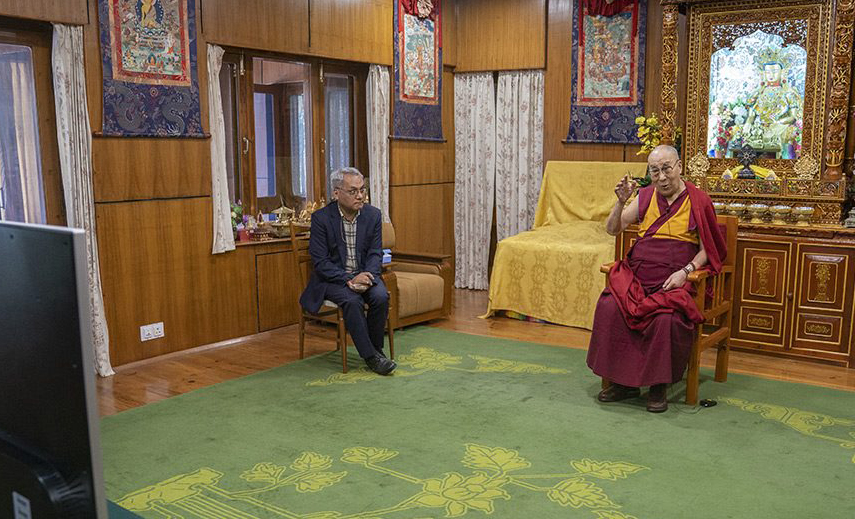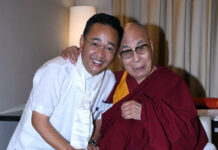
(TibetanReview.net, Jun26, 2018) – Expressing optimism about his health and longevity, Tibet’s exiled spiritual leader, the Dalai Lama, has said Jun 25 that he expects to live for another 15-20 years. “My physical health, now 83 years and since I am ok, I am looking forward to another 15, 20 years,” he was quoted as saying in a live teleconference from his residence with a group in the Australian city of Sydney.
Speaking on ‘Happiness & Its Causes’ to a group at the city’s International Convention Centre, the Dalai Lama has said in his usual playful way: “If you judge from my voice, it’s quite good. I often ask people, including Indian security persons in the morning when I meet them, what they think of my age. They make a guess around 70. Then I tell them that I am in 80s… They say I look very young”.
The group questioned the Dalai Lama on a range of issues, including Tibet, conflicts, US President Donald Trump, his commitments and his ‘valuable mistakes’.
Starting from his assumption of temporal and spiritual leadership at a very difficult time in Tibet’s history at the age of 16, the Dalai Lama has expressed confidence that he had made no major political mistakes.
“I think all my major decisions eventually seems very correct,” he said.
He also referred to his decisions to democratize the exile Tibetan governance system which culminated in his complete retirement from politics in 2011.
Asked how he managed the grief over developments in his Chinese ruled homeland, the Dalai Lama has sought to broaden the issue to point out that Tibetans believe in the law of causality. The Tibetan problem, he has said, was a consequence of “old causes” that had ripened.
He has pointed out that Chinese history books show Tibet to be one of the three major powers in the region – the others being China and Mongolia – in the 7th, 8th and 9th centuries. He has added that the Tibetan empire disintegrated in the 9th century due to conflict within the ruling dynasty.





